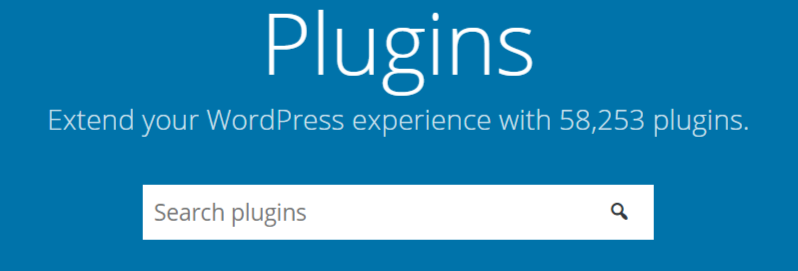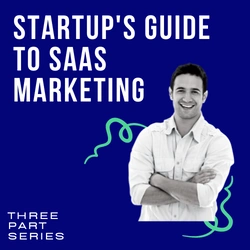Updated: February 13, 2021
8 Important Things You Probably Did Not Know About WordPress
While it is true that WordPress now powers over 40% of the entire internet there are some things that few people know about the world’s most popular open-source software. Did you know that WordPress actually began in France? Or that the WordPress community takes its documentation so seriously that it holds weekly meetings?
1. WordPress is both owned by everyone and no one.
WordPress is released under a General Public License or GPL which states that anyone who wants to can take the source code and do anything they desire with it. They can then release it back into the world as they see fit. But, and here’s the important part, it must be released under the same license. That means if you make any changes including adding features, you must release the source code of your changes to everyone.
You, personally, can download WordPress, change it, and release it as your own software if you wish. You own it. But by the same token, everybody else does, as well.
2. WordPress can trace its origin to France.
WordPress is primarily seen as English given the nationalities of the two founders, American Matt Mullenweg and Brit Mike Little. In truth, it was originally built on code developed by a French programmer named Michel Valdrighi.
3. WordPress began as just a fork of another project.
It’s true. The widely known open-source juggernaut has some very humble roots. The French coder Michel Valdrighi developed one of the first blogging tools known as b2 (aka cafelog) in 2001. By late 2002 Michel stopped actively developing b2 to focus on other projects.
Matt and Mike had previously discussed creating a blogging platform and had b2 had all the fundamentals to give them a jump start. And best of all, b2 was available under the GPL license meaning they could take it, change it, and release it as their own. Well, if they made their new code available to the public, which, of course, they did.
4. It was never meant for just blogging.
The consensus is that WordPress began with the intention of it being used only for content management (known as blogging in those days). That’s not true. If Matt and Mike had any intention of keeping it to a blogging only solution, they would have simply expanded its predecessor, b2, which was exclusively a blogging tool.
The b2 or cafelog software was written with only one thing in mind and only one expectation – blogging. In fact, b2 didn’t provide for any other pages other than post types.
The first release of WordPress to the public included something that b2 did not, it gave users the flexibility to create pages. You didn’t have to use WordPress for blogging at all. You could use it as a website builder and manager by using only pages.

5. It has created the largest community of entrepreneurs and programmers, ever.
Thanks to the open-source license WordPress isn’t controlled by anyone. What does that mean for developers? A lot. If you create a great app for the iPhone and charge $5 for it, Apple will take 30% for themselves as it owns the platform that you’re doing business on.
If you create an app (known as a plugin) for WordPress and charge $5, you keep all of it.
That’s the main reason why WordPress has grown so quickly and now has over 58,000 plugins, of which, 54,000 of those are free. And I’m not even including the many premium themes some of which have sold over 1 million.
6. The WordPress community takes documentation very seriously.
Anyone may create an account on wordpress.org and edit the documentation without restriction. Since WordPress is owned by everyone and no one, there is no WordPress boss or leader who has final say. That extends to the documentation as well. Like the software itself, the docs and help files are a community effort.
There is even a weekly online meeting to go over new documentation and edits. If you find a mistake in the documentation, fix it. If you find errors, correct them. And if the exact subject matter of the documentation you’re looking for doesn’t exist, you can create it.
You can become part of the team that reviews all changes just by showing up to the regular meetings.
7. There is a mobile app for WordPress.
If you go to wordpress.org/mobile, you can download an app for iOS and Android. You can use the app to connect either to your account on wordpress.com or to your private WordPress install.
You can use it to create posts, upload images, manage comments, pretty much anything that you can do with WordPress.
8. There’s a WordPress training conference, or WordCamp, happening somewhere in the world every weekend of the year.
June 2020 Update: Many WordCamps have been cancelled (or switched to a virtual format) due to Covid-19. Once the virus is under control the conferences will resume stronger than ever.
February 2021 Update: As expected upcoming WordCamps around the globe have been announced from the United States to Europe and South America.
WordCamps are great places to learn about WordPress and to meet people with similar interests. They’re also very inexpensive to attend given the fact that a massive tech company isn’t in control.
And they’re everywhere, so there’s probably one relatively close to you.
In my experience a WordCamp conference is a very welcoming, comfortable place full of people who are as kind and generous as they are excited to be a part of something bigger than any one person.
The eight little known WordPress facts that you just read will absolutely give you an advantage the next time you’re at a WordCamp and someone decides to play the drunken WordPress facts game. It happens.



Divi and Elementor are popular WordPress visual page builder plugins for a reason, but which is best for your needs? Let’s examine the similarities, differences, strengths, weaknesses and pricing to answer that question. Keep Learning >

We tested Smush Pro CDN, WPMU DEV and Bunny.net and switched to Bunny CDN with no regrets. Faster, flexible, no WordPress plugin required and cheaper. Let me explain. Keep Learning >



